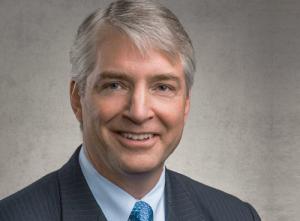Northwestern Energy
Brian Bird is COO of Northwestern Energy.
Electric Power, Arizona Public Service, Evergy, Northwestern Energy, PPL Corporation, WEC Energy Group, and Xcel Energy, as outlined below by execs from these companies, have quite decisively accelerated their progress on ESG priorities, through investment, innovation, and a clear intent to be recognized as leaders in ESG at the same time that they continue to deliver safe, reliable, and affordable utility service to the communities that depend upon them, powerfully.

PUF's Steve Mitnick: What are some of the most important ESG initiatives your company has undertaken?
Brian Bird: I would argue that every ESG initiative NorthWestern Energy pursues is important.
The goal is sustainability, built on operational excellence, financial soundness, constructive policy, and cultural integrity.
The first initiative to mention is our focus on good governance. We were talking about governance long before ESG was a thing. Upon emergence from bankruptcy in 2004, it was important to regain trust from our stakeholders and we needed to be a leader on corporate governance.
Our recognition by Moody's Investor Services, which names NorthWestern Energy in the top five among fifty publicly traded North American utility and power companies on Best Governance Practices, is an acknowledgement of our success here.
NorthWestern Energy's electric generation is sixty-five percent carbon free, compared with the total U.S. electric power industry, which is about forty percent carbon free. The company's purchase of eleven hydro facilities in Montana in 2014 for eight hundred seventy million dollars was the catalyst of our clean generation portfolio. The hydro generation stabilized customers' rates, will do so for years to come, and accelerated our pursuit of a cleaner generation portfolio
Our employees call the communities we serve home, where we raise our families, and are committed to the health, welfare, and growth of the places we live. NorthWestern Energy's annual community giving, including economic development, exceeds $5.5 million.
Though the S in ESG is difficult to measure, we believe providing reliable, affordable, and sustainable service is crucial to our customers and our employees.
Speaking of our employees, they represent the brand well and the strong family culture we have is difficult to provide a score on, but it is truly the reason I have been here for eighteen years.
PUF: What strategy does NorthWestern Energy use to meet the company's goals?
Brian Bird: We take actions that are data-driven and result in measurable outcomes. For example, our employees are our most valuable asset, and it is in the best interest of the company for our work environment to be as safe as possible.
NorthWestern Energy implemented a companywide program several years ago that guides employees through a series of warm up exercises at the start of their day to reduce the risk of the most common work-related injuries we were experiencing. We can measure the success of that initiative in our safety statistics: 2020 was our best safety year on record and 2021 is in line with those results.
In addition, capital investments are evaluated on sixteen characteristics and ranked accordingly, including a project's impact on service reliability and safety.
Finally, NorthWestern Energy is not shy to commit to long-term investments that may require decades to complete. The O'Dell Creek Restoration Project near Ennis, Montana began in the early 2000s to repair damage from the 1950s when the area was ditched to expand usable land for agriculture.
O'Dell Creek is a tributary to the Madison River, on which NorthWestern Energy owns two run-of-the river hydro facilities, and the project includes fishery improvements on this Blue Ribbon trout river. We have funded sixty-three projects at O'Dell Creek with $2.9 million in investment from us and another eight hundred thirty thousand dollars from our project partners.
In 2005, only twenty-nine bird species were observed at O'Dell Creek, three of which were Montana species of concern. Today one hundred twenty-one bird species are documented in the project area, including eighteen Montana species of concern.
More than fourteen miles of spring creek are restored, along with more than eight hundred acres of improved wetlands, with two hundred sixty-five wetland plant species, which include five rare species.
PUF: What accomplishments to date are you most proud of?
Brian Bird: NorthWestern Energy's commitment to a transition to an even cleaner energy future that builds on the progress we have already made.
Our hydro generation investment in Montana, along with investments in wind generation in Montana and South Dakota, means today sixty-five percent of our electric generation is carbon free. Hydro makes up thirty-five percent of our owned and long-term contracted power portfolio and wind and solar make up thirty percent.
We are committed to working with our customers and communities to develop an energy future that is affordable, reliable, environmentally responsible, and capable of meeting the needs of all customers.
PUF: What aspiration should we look for your company to reach in future years?
Brian Bird: We'll continue to use proven technology to pursue an even cleaner energy future. Though that will be difficult to balance with reliability and affordability, it is necessary for our industry and our communities to flourish.
The steps we have taken on the electric side of our business has us well on our way to a carbon free future. Nonetheless, we now need to turn our attention to the gas side of the business to find a way to provide that service in a more carbon-friendly manner.
ESG Powerfully conversations, some with Guidehouse's Dan Hahn and Michelle Fay:
- AEP Managing Director - corporate sustainability Sandy Nessing
- Arizona Public Service VP Ann Becker
- Evergy General Counsel Heather Humphrey and Chief Compliance Officer Ellen Fairchild
- NorthWestern Energy COO Brian Bird
- PPL Corp. COO Greg Dudkin and PPL Electric Utilities President Stephanie Raymond
- WEC Energy Group SVP Beth Straka
- Xcel Energy SVP Frank Prager


